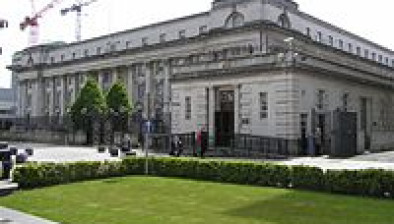Review: Attempted suppression of Spycatcher book became a costly farce

Robert Shiels reviews a new book on one of the UK’s best-known spying scandals.
There is an aphorism along the lines of history is past politics and present politics is future history, and that might well be a suitable introduction to a new book on the Spycatcher affair.
Stated briefly, for some years after 1985, the UKA government commenced a succession of expensive, damaging and unsuccessful legal actions in England and in foreign jurisdictions.
The overall strategy, applied relentlessly, was to try to prevent a retired spy from publishing his memoirs about various aspects of his former occupation and the implications for the defence of the realm.
These broad concerns for national security were supplemented by personal bitterness from the author at a loss of some pension entitlement due to a perception of managerial duplicity.
Endless series of events dominated domestic politics and engaged the press as an intriguing moment (for which ‘years’ might be substituted) in the history of British government, and of journalism itself.
Tim Tate has produced a very readable account of a highly complex series of events beginning in the 1930s and the rather clubbable and unconstrained arrangements for national security.
The development of international concerns of possible war in the 1950s led to a continuing freedom to act in the public interest without legal inhibitions.
The concluding events came to courts across the world because of an enduring executive intransigence of immense proportions.
The balanced narrative sets out the manner in which the issues played out in an international context and driven by an executive acting in the face of clear and unequivocal legal advice to do the contrary.
As to the book by the spy, the publishers had sought repeatedly to try to reach some agreement that would allow publication of even a partial manuscript but there was no response to offers of resolution.
Indeed, the publisher of Spycatcher is quoted as saying that with everything that the UK government was ostensibly trying to do, it achieved the opposite.
The whole fiasco has to be a matter concerning first principles in the constitutional arrangements of the United Kingdom and much else and this excellent study helps uncover the latent issues, particularly in the context of the initial aphorism.
The story has hardly ended as the author in the concluding ‘acknowledgements’ lists, using his term, the ‘dis-acknowledgements’, those people in a position of some authority who have not assisted when requested, even now with the law and policy of freedom of information.
To go off at a not irrelevant tangent, your reviewer recalls that in around 1990 there was a press report that the Prime Minister, Mrs Margaret Thatcher, had sight of the whole costs of the Spycatcher saga.
Endless actions and appeals led the costs to be borne by the weary United Kingdom taxpayer as about, in present monetary values, about £8 million.
The UK government had lost the key action in New South Wales, where it had been represented in the traditional manner by senior and junior counsel, both “decked out in black gowns and eighteenth-century wigs”, instructed by a solicitor, with hordes of other officials present.
Wright had been represented solely by an Australian solicitor with extended rights of audience, then known by what in the United Kingdom was the novel title of solicitor advocate.
The UK government was required having lost the litigation to meet its own and the much lower costs, ‘distinctly modest’ at £550,000 of what had been the successful side.
That financial imbalance was said to be the driving force for an attack by Mrs Thatcher, notwithstanding her being a barrister, on the ancient structure of the legal professions in the United Kingdom.
The economically attractive option of a solicitor with extended rights of audience appealed to the market-driven philosophy of Mrs Thatcher, thus the change of law coming into effect in 1993.
That explanation of the true momentum for the attack on the monopoly of the traditional Bar might have been part of the urban myth of the time, or maybe it was merely a classic political response.
To Catch a Spy: How the Spycatcher Affair Brought MI5 in from the Cold by Tim Tate. Published by Icon Books, 2024, 400pp.











